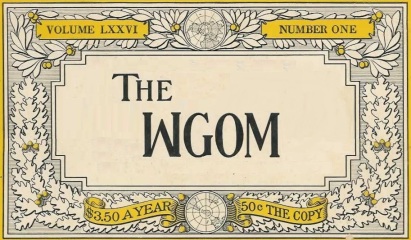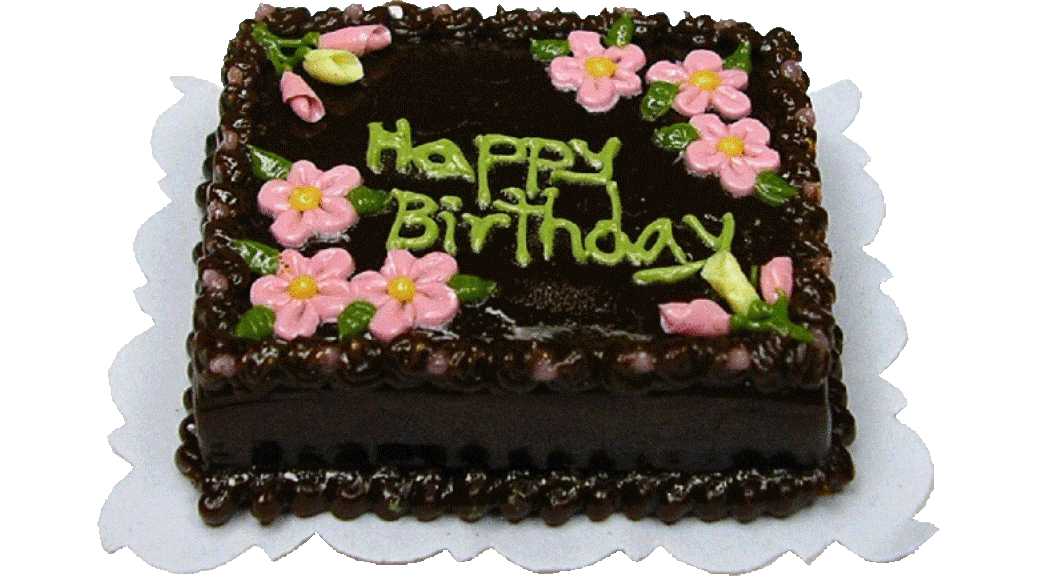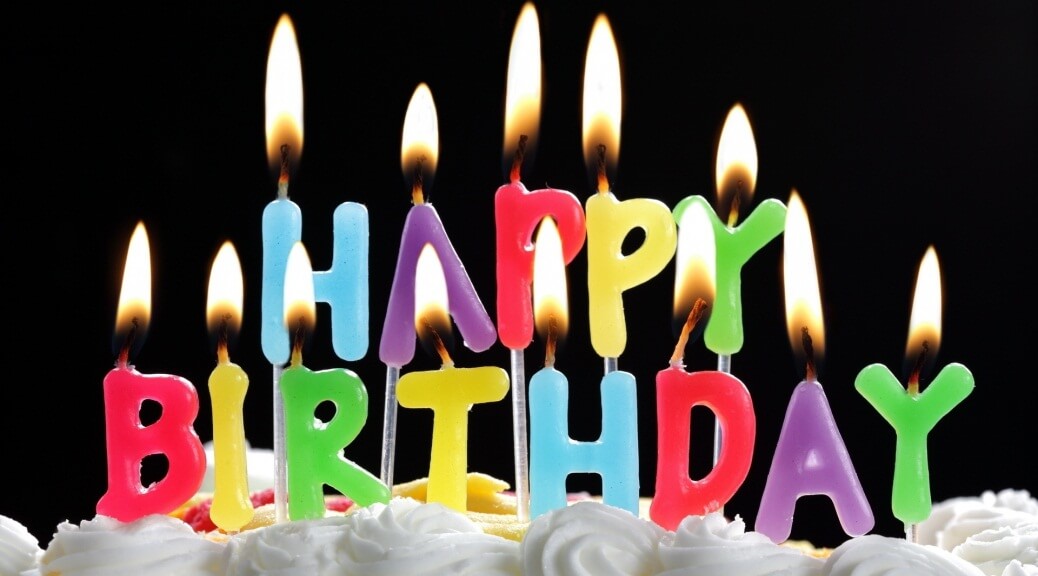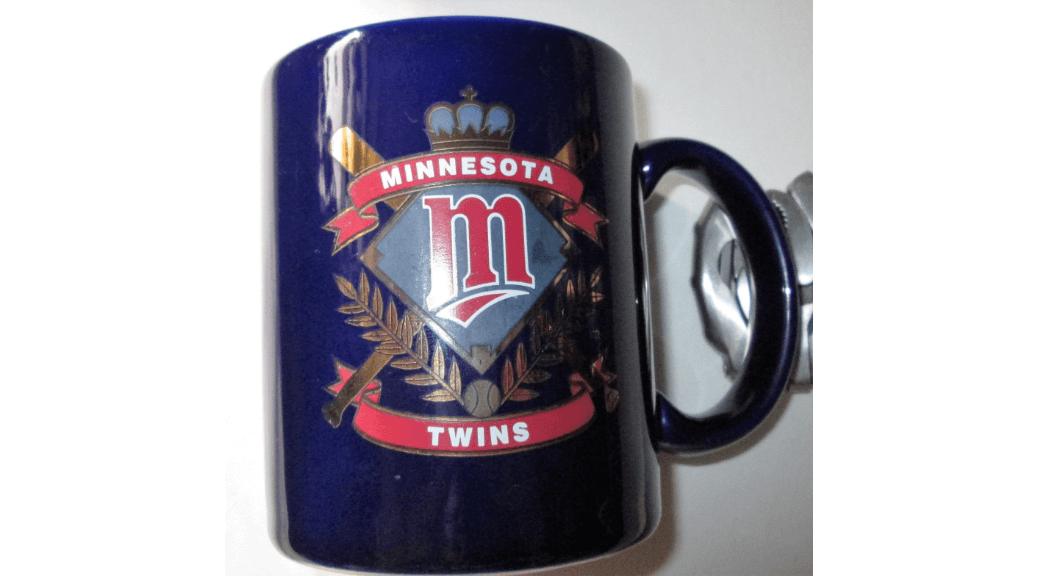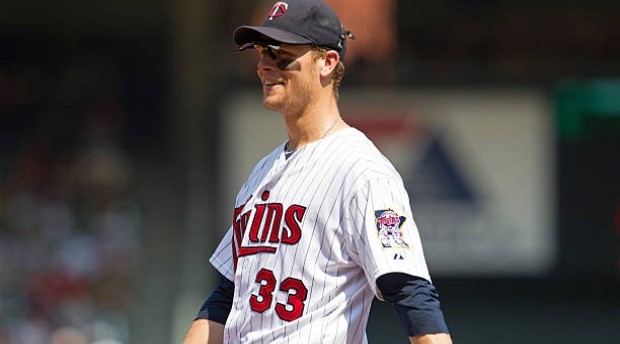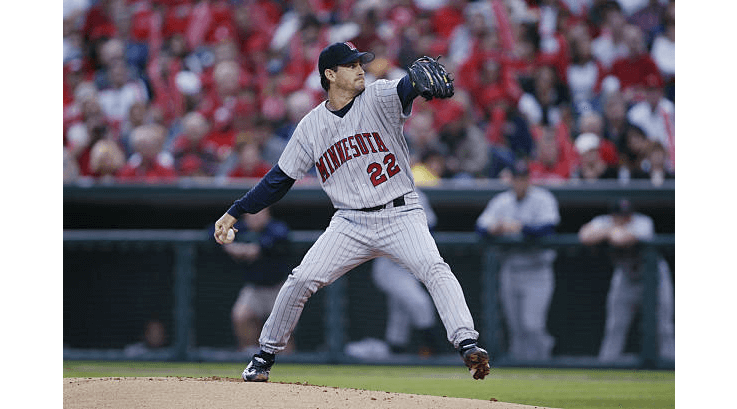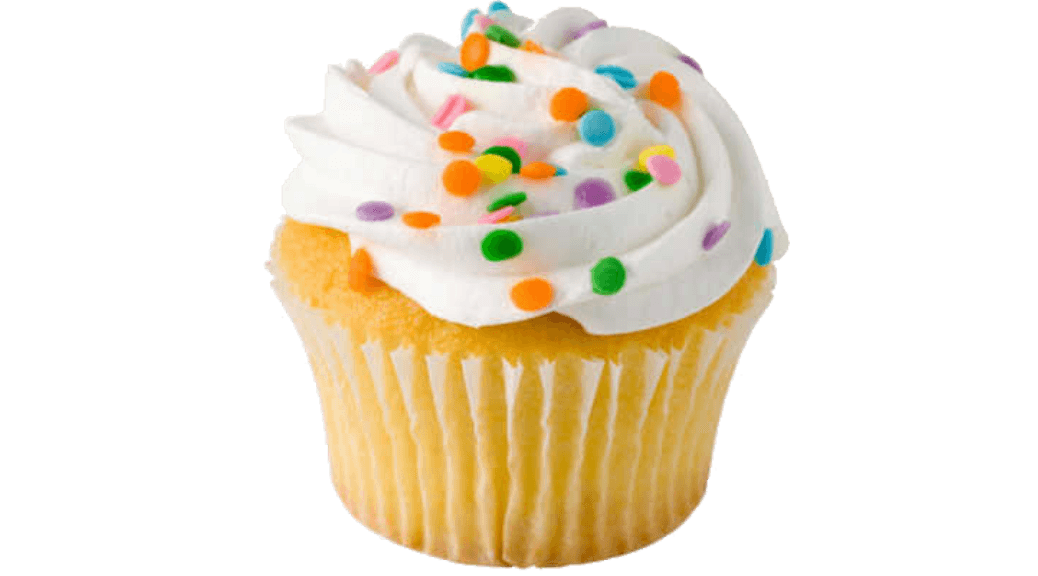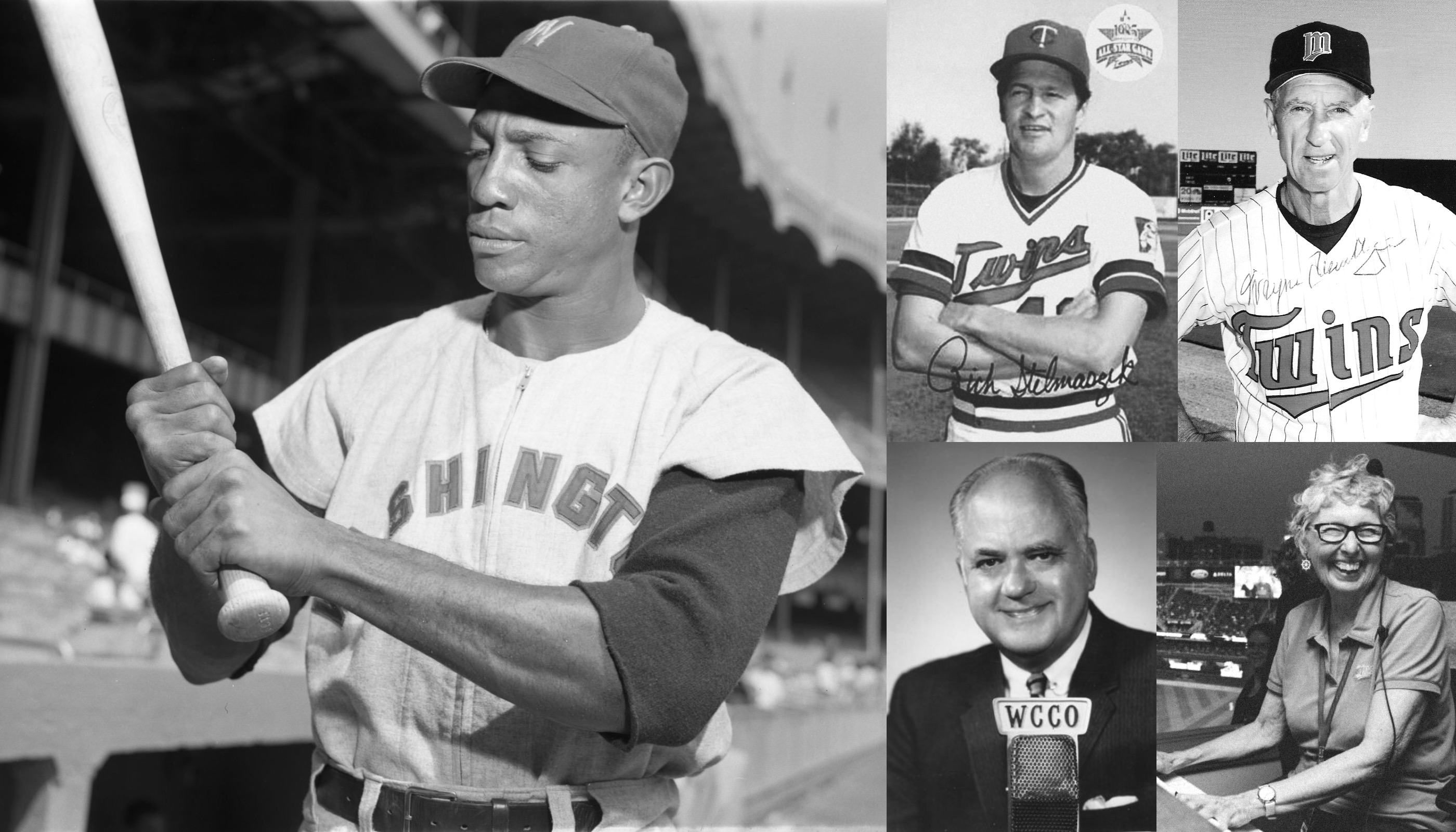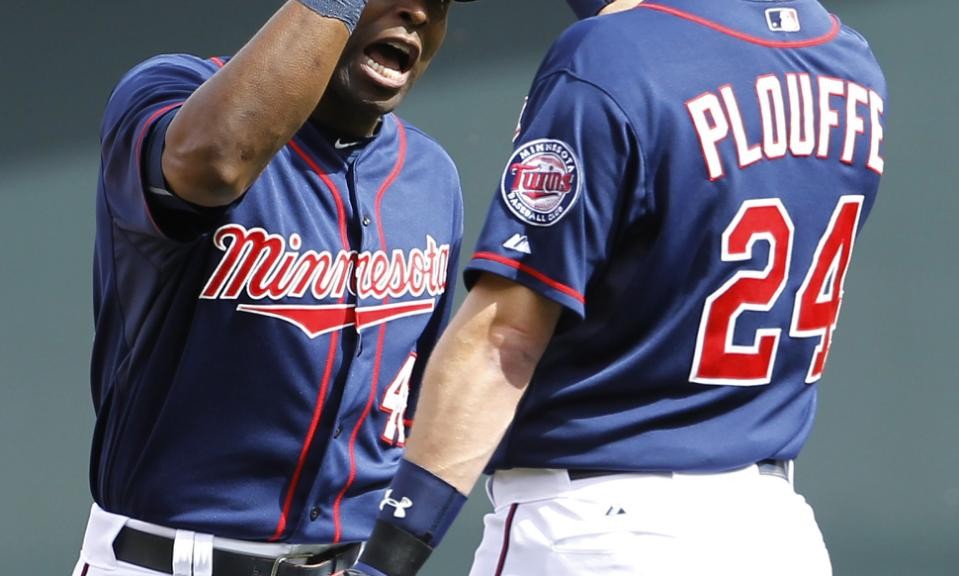Harry Davis (1873)
Larry McLean (1881)
Eugene Bremer (1916)
Johnny Hopp (1916)
Joe Torre (1940)
Rudy May (1944)
Harry Spilman (1954)
Razor Shines (1956)
Mike Greenwell (1963)
Torii Hunter (1975)
Glenn Williams (1977)
Ben Sheets (1978)
Eugenio Suarez (1991)
Tag Archives: Torii Hunter
Happy Birthday–July 18
Harry Davis (1873)
Larry McLean (1881)
Eugene Bremer (1916)
Johnny Hopp (1916)
Joe Torre (1940)
Rudy May (1944)
Harry Spilman (1954)
Razor Shines (1956)
Mike Greenwell (1963)
Torii Hunter (1975)
Glenn Williams (1977)
Ben Sheets (1978)
Eugenio Suarez (1991)
Happy Birthday–July 18
Harry Davis (1873)
Larry McLean (1881)
Johnny Hopp (1916)
Joe Torre (1940)
Rudy May (1944)
Harry Spilman (1954)
Razor Shines (1956)
Mike Greenwell (1963)
Torii Hunter (1975)
Glenn Williams (1977)
Ben Sheets (1978)
July 14, 2022: Get `Em Up Against The Wall
Based on yesterday's question:
Which Twins Player's Number Would You Retire, If Any? (vote as many as you'd like)
- None (39%, 7 Votes)
- Johan Santana (33%, 6 Votes)
- Jason Morneau (11%, 2 Votes)
- Joe Nathan (11%, 2 Votes)
- Torii Hunter (6%, 1 Votes)
Total Voters: 15
Happy Birthday–July 18
Harry Davis (1873)
Larry McLean (1881)
Johnny Hopp (1916)
Joe Torre (1940)
Rudy May (1944)
Harry Spilman (1954)
Razor Shines (1956)
Mike Greenwell (1963)
Torii Hunter (1975)
Glenn Williams (1977)
Ben Sheets (1978)
2003 Rewind: Game Eighty-five
MINNESOTA 9, CLEVELAND 2 IN MINNESOTA
Date: Friday, July 4.
Batting stars: Cristian Guzman was 2-for-4 with two doubles and two RBIs. Justin Morneau was 1-for-4 with a two-run homer, his third. Corey Koskie was 1-for-4 with a home run (his thirteenth), a walk, and three RBIs.
Pitching star: Rick Reed pitched seven innings, giving up one run on six hits and a walk and striking out five.
Opposition stars: Coco Crisp was 2-for-4. Alex Herrera pitched two shutout innings, giving up a walk.
The game: The Twins offense provided the Fourth of July fireworks. In the second, Torii Hunter singled and Morneau hit a two-run homer. The Indians got one back in the third when Milton Bradley walked and scored from first on a double by Jody Gerut. But the Twins scored two more in the bottom of the third Doug Mientkiewicz walked and Koskie hit a two-run homer.
The offense continued in the fourth. Dustan Mohr walked, Guzman doubled, and Luis Rivas hit a two-run single. Singles by Bobby Kielty and Mientkiewicz loaded the bases, and an infield out made the score 7-1. They added two more in the fifth. Mohr walked, A. J. Pierzynski singled, and Guzman hit a two-run double to put the Twins lead at 9-1.
That was pretty much it. Cleveland tacked on a run in the eighth but never threatened to get back into the game.
WP: Reed (4-8). LP: Jason Davis (7-7). S: None.
Notes: Mohr was again in left field in place of Jacque Jones. Kielty was in right and Morneau was the DH.
Lew Ford pinch-hit for Hunter in the third and stayed in the game in center field. A couple of balls were hit to center in the prior half-inning--perhaps Hunter tweaked something. He would be back in the lineup the next day. Tom Prince pinch-hit for Pierzynski in the seventh and stayed in the game to catch.
Ford was 0-for-2 and was batting .319. Koskie was batting .304.
By game scores, this was Reed's best game in nearly two months.
Indians players in this game who had Twins connections include Matt Lawton, Casey Blake, and Terry Mulholland.
Alex Herrera had come up on July 1. This was his third game. He had an ERA of zero through four innings. He would be unscored upon in his next four appearances. He would then give up seven runs in 1.1 innings in his next three appearances, be sent to the minors, and would never make it back to the big leagues again. He was only twenty-three. He would play in the minors through 2006 and played in a variety of foreign leagues, both summer and winter, through 2015.
The Twins' victory broke a four-game losing streak.
Record: The Twins were 44-41, in second place in the American League Central, 2.5 games behind Kansas City. They were just two games ahead of third-place Chicago.
2003 Rewind: Game Twenty-one
KANSAS CITY 2, MINNESOTA 1 IN KANSAS CITY
Date: Thursday, April 24.
Batting stars: A. J. Pierzynski was 2-for-3. Torii Hunter was 2-for-4.
Pitching star: Brad Radke pitched an eight-inning complete game, giving up two runs on four hits and one walk and striking out four.
Opposition stars: Chris George pitched six innings, giving up one run on five hits and two walks and striking out three. Jason Grimsley pitched two shutout innings, giving up one hit and striking out one. Carlos Febles was 2-for-3 with a stolen base. Mike Sweeney was 1-for-2 with a home run (his fourth) and a stolen base.
The game: The Twins got a pair of one-out singles in the first but did not score. Neither team threatened after that until the fourth, when Sweeney hit a two-out home run to put the Royals up 1-0. The Twins tied it in the sixth with a two-out rally: Bobby Kielty walked and singles by Corey Koskie and Hunter plated the run.
Kansas City went back in front in the bottom of the sixth. Febles led off with a single and scored from first on a one-out double by Joe Randa.
And that was it. The Royals did not get a man on base after the sixth, but it didn't matter. The Twins got a couple of singles, but never advanced a man past first base.
WP: George (3-1). LP: Radke (1-3). S: Mike MacDougal (9).
Notes: Michael Cuddyer was again in right field. Kielty was again the DH. There were no in-game lineup substitutions.
Kielty was 1-for-3 with a walk and was batting .340. Cuddyer was 0-for-3 and was batting .193.
Radke lowered his ERA to 6.28. This was the first of three complete games Radke had in 2003. He had 37 for his career. By game scores this was his second-best game of the season, topped only by a complete game shutout on August 26.
After a lowpoint of .111 on April 11, Hunter finally climbed above the Mendoza line to stay at .216. It seems like he was pretty hot-and-cold in 2003, posting averages by month of :.217, .269, .273, .229, .233, and .284. On thinking about it, though, I wonder just how unusual that really is. Everyone bounces up and down over the course of a season--how much variance is "normal" and how much is "unusual"? I don't really know.
I kind of remember Joe Randa as a Twins killer, but he really wasn't. He batted .275/.315/.404 for his career against the Twins and .264/.293/.431 against them in 2003. His overall career numbers are .284/.339/.426, so he actually was worse against the Twins than against the rest of MLB. Maybe I just remember a few big hits he got or something.
I didn't actually go through his whole career to check, but this has to be one of the best games Chris George ever pitched. By game scores it was the second-best of the season, topped only by his first game of the season, when he pitched 6.2 innings and also gave up one run on five hits. He made eighteen starts in 2003 and had an ERA of 7.11 with a WHIP of 1.75. Somehow he went 9-6, which is probably why he was allowed to make 18 starts. It's not like this was just a bad year--for his career he was 14-20, 6.48, 1.66 WHIP in 237.1 innings (47 games, 44 starts). His "best" season was his first one, 2001, when he went 4-8, 5.59, 1.37 WHIP in 13 starts. In his defense, he was rushed to the majors at age 21 on the strength of 18 AA starts in which he went 8-5, 3.14, but with a WHIP of 1.47. He was on the Omaha/Kansas City shuttle from 2001--2004, spent all of 2005 in Omaha, then became a free agent. He was with several organizations after that, but never made it to the majors. Would more time in the minors when he was younger have helped? It's hard to say. It wouldn't have hurt, but at the same time, his career AAA numbers are 66-73, 4.95, 1.52 WHIP in 1223 innings. It seems more likely that he just was never that good in the first place.
This made six losses in a row for the Twins, and was the seventh series sweep they'd been involved in at the start of the season.
Record: The Twins were 9-12, in third place in the American League Central, eight games behind Kansas City.
Happy Birthday–July 18
Due to personal time constraints, this is a reprint from last year which has not been updated.
Harry Davis (1873)
Larry McLean (1881)
Johnny Hopp (1916)
Joe Torre (1940)
Rudy May (1944)
Harry Spilman (1954)
Razor Shines (1956)
Mike Greenwell (1963)
Torii Hunter (1975)
Glenn Williams (1977)
Ben Sheets (1978)
Hall of Shame
This weekend the Twins will induct Michael Cuddyer (2001–2011) & Andy MacPhail (1984–1994) as the newest members of the club's Hall of Fame. This honor was first bestowed on five players—Harmon Killebrew, Rod Carew, Tony Oliva, Kent Hrbek, & Kirby Puckett—and a former club owner in 2000.
MacPhail was the primary architect of the Twins' two World Championship teams, which had the potential to develop into a mini-dynasty had his boss Carl Pohlad given him slightly more latitude with payroll, particularly following the second trophy in 1991. MacPhail left the Twins in 1994 to take over the capsizing Cubs, and soon after Pohlad began issuing a string of threats to sell the team to an ownership group in a mediocre mid-Atlantic market (still without a team decades later), where it doubtless would have quickly withered in a minor-league ballpark under the heat from the Atlanta Braves dynasty to its south. True to form, a couple years later Pohlad conspired with his pal Bud Selig—so distraught over the loss of his beloved Milwaukee Braves that he hijaked the Seattle Pilots—to take a payout from MLB and contract the Twins. I doubt that is mentioned in his Twins Hall of Fame bio.
Apart from MacPhail and Pohlad, four other executives have been inducted, a somewhat restrained number given the franchise's Brezhnevesque fetishization of internal stability in its front office, to the point of systemic intellectual stagnation. These are:
Calvin Griffith, the owner who relocated the franchise to Minnesota, and whose considerable baseball savvy was only trumped by his racist grudges & motives.
George Brophy, general manager of the Minneapolis Millers until the club folded in advance of the Twins' arrival; he was promoted to the majors in Minnesota and eventually presided over the club's entire farm system, developing a prospect-rich pipeline that won it all two years after he retired.
Jim Rantz, who succeeded his mentor, Brophy, and ran the farm system through thick & thin for twenty-seven years.
Tom Mee, tridecennial PR man, uneven official scorer, and holder of various other titles, none more singular than "First Twins Employee*" (*non-player personnel, of course).
Cuddyer, the Twins' first round draft pick (9th overall) in 1997, will be the 20th player inducted by the Twins. He joins real some real Hall of Famers, some Very Good-ers who rightfully claim legendary status in Minnesota, and a couple guys with notable careers but dubious credentials. Unfortunately for Cuddyer, this last group describes his own Minnesota curriculum vitae. By position & rWAR with Minnesota, these players are:
C: Earl Battey
1b: Kent Hrbek
2b: Rod Carew
3b: Harmon Killebrew, Gary Gaetti
SS: Greg Gagne, Zoilo Versalles
LF: Bob Allison
CF: Kirby Puckett, Torii Hunter
RF: Tony Oliva
SP: Bert Blyleven, Brad Radke, Jim Kaat, Frank Viola, Jim Perry, Camilo Pascual
RP: Rick Aguilera, Eddie Guardado
The lone elected–but–uninducted player is Chuck Knoblauch, the brassy second baseman of the 1991 World Champions who has ridden his way into ignominy on waves of domestic assault, performance-enhancing drugs, and sewer-worthy social media activity. Twins fans pelted Knobby with hot dogs in 2001. The Twins disinvited him from the Hall of Fame in 2014.
We are fortunate to live at a time when public monuments to reprehensible conduct are being contested and removed. Knoblauch's anathematization suggests the Twins are willing to draw a line; the question becomes, should the club reconsider how it has celebrated:
Calvin Griffith, who was memorialized in bronze outside Gate 29 in 2010. This is the same Calvin Griffith who said of moving his club from the District of Columbia to Minnesota—"I'll tell you why we came to Minnesota. It was when I found out you only had 15,000 blacks here. ... We came here because you've got good, hardworking, white people here."—and drove away the best position player in franchise history with his potent combination of bigotry & parsimony in the same night. If the Twins are an organization with a conscience, Griffith's statue should be razed before the end of the season. I am not the first to point this out. Perhaps I could make the first suggestion for its replacement: Carlos Paula, a Cuban right fielder who broke the Washington Senators' color barrier in 1954 and played for the Minneapolis Millers in 1957.
Carlos Paula presents an opportunity to consider the status of Torii Hunter, the Twin Cities media darling whose brand of casual bigotry seems to be amenable to the Pohlads, Dave St. Peter, and the new Derek Falvey-Thad Levine front office regime that retained him. Hunter once slandered black Latino players like his then-teammate Vladimir Guerrero, pioneers like Carlos Paula, and the most beloved Twin of all time, Tony Oliva, as race "imposters." One wonders what he makes of Miguel Sanó, the Twins' emerging slugger and a Dominican of Haitian & Cocolo heritage. During the press conference celebrating his return to Minnesota, Hunter indulged himself by publicly branding a reporter a "prick" four times for asking him to reflect on his freely-professed anti-gay rhetoric. The Twins had expressly brought Hunter back to mentor its talented, ethnically diverse next generation.
Carl Pohlad was a multi-billionaire who, as a young bank official, foreclosed on mortgagees during the Depression and then, at the end of his life, bilked his community for the beautiful ballpark the Twins call home. His manipulative, naked avarice will likely be forgotten thanks to the Vikings' new monstrosity, and in any case his kids aren't about to remove the statue of their parents from the ballpark's grounds. Hopefully a future owner of the Twins will find a more suitable place for that statue, perhaps overlooking the HERC.
Finally, there's the thorny question of what to do about Kirby Puckett, a phosphorescent talent whose effervescent personality made him a hero of a generation of Twins fans, and who, after his forced retirement, fell hard from atop the improbable mountain he scaled out of Chicago's Robert Taylor Homes. Frank Deford's "The Rise and Fall of Kirby Puckett" read like the kind of hit piece someone as misanthropic as Deford would relish writing, but looking away from the accusations it detailed is not an option, no matter the apparent glee with which they were related. Over a decade after Puckett's early death, many of us remain deflated as the Metrodome he electrified, uncertain how to address a man who did much good in the community and failed to live up to that standard in his private life.
There are four other non-player members of the Twins' hall, disparate talents unified by indelible personalities:
Herb Carneal, always and forever the stentorian Voice of the Minnesota Twins.
Tom Kelly, laconic, fungo-weilding skipper of both World Series Champions.
Bob Casey, public address announcer whose quintdecennial gig in Minnesota's pro ballparks barely outlasted how long he held the second syllable of "Kirby."
John Gordon, everyone's loquacious radio uncle who, in his later years, could make guys like Jason Tyner sound like Babe Ruth.
The gap between the number of club executives and people who shaped the games on the field and in fans' minds suggests a couple areas where the Twins Hall of Fame neglects the club's history.
Rick Stelmaszek's two visits to Minneapolis this season following his pancreatic cancer diagnosis have been bittersweet. Stelly's firing in October 2012 after 32 years of coaching struck me as particularly cold-blooded. Stelmaszek was not the GM who assembled a bullpen corps that included Brian Duensing, Jeff Gray, Matt Capps, Tyler Robertson, and Anthony Swarzak. Stelmaszek was a notorious conditioning taskmaster for decades; unpreparedness and ambivalence would have been completely out of character. Twins players across generations seem to love the guy. For his critical role on two World Champions and his decades of relationship & player development, Rick Stelmaszek should be in the Twins Hall of Fame while he is still among the living.
Wayne Terwilliger's tenure with the Twins coincided with Andy MacPhail's, but it was neither his first experience in the organization nor his first Minnesota go-around in professional baseball. Twig might be the embodiment of both Minnie & Paul. He played for the St. Paul Saints in 1952 and the Minneapolis Millers from 1954–1957. In between, he played for the Senators from 1953–1954. Jackie Robinson's understudy on the '51 Dodgers, Twig appears to have been out with an injury when Carlos Paula broke the Senators' color barrier at home on 1 September; Twig & Paula saw action as replacements in the first game of a double-header in Detroit on 12 September. They both met again in Minneapolis as starters for the '57 Millers. Twig joined the Twins in 1986 and is one of a handful of on-field personnel on both the '87 & '91 teams. After leaving the Twins (why?), Twig managed the St. Paul Saints from 1995–2002. I don't know much about Twig's personal life other than his WWII tour with the Marines (including Saipan, Tinan, & Iwo Jima), but not many non-owners get to spend over sixty years in professional baseball if they're jerks. Somebody could go ask Willie Mays for a character reference—he & Twig were teammates on the Giants.
I am not ready for Sue Nelson to retire, but I hope that the Twins will see fit to celebrate a woman who has had as much influence on the soundscape of Twins baseball as any player to knock out a home run, or any broadcaster whose voice rises in anticipation, meshing with the fans shouting a hip-hooray as the ball soars out of the field. Sue would be a fantastic addition to the Twins Hall of Fame.
The last of these is Halsey Hall. Halsey's the namesake of the Minnesota SABR chapter, and he was inducted into the Minnesota Sports Hall of Fame nearly thirty years ago, so this should be a relatively easy. If more proof of his merit was necessary, his status as an Twins' original—and easily the all-time most colorful—broadcaster, his longtime affiliation with the Minneapolis Millers, and his post-retirement tour as pre-game emcee at the old Met would be sufficient. And yet, with every year it seems less likely that Halsey will be elected to the Twins Hall of Fame. He retired from broadcasting in 1972 and died in 1977, so the current voters and younger fans likely couldn't care less about a loveable nut calling baseball games on radio signals that are probably passing into interstellar space.
But that's still a shame for the Twins. It's just not a Hall without Halsey.
Game 16. Twins hosting Detroit
Torii Hunter in the TV booth. Mute button is on standby.
Hector Santigo for the Twins, Justin Verlander for the kittys.
